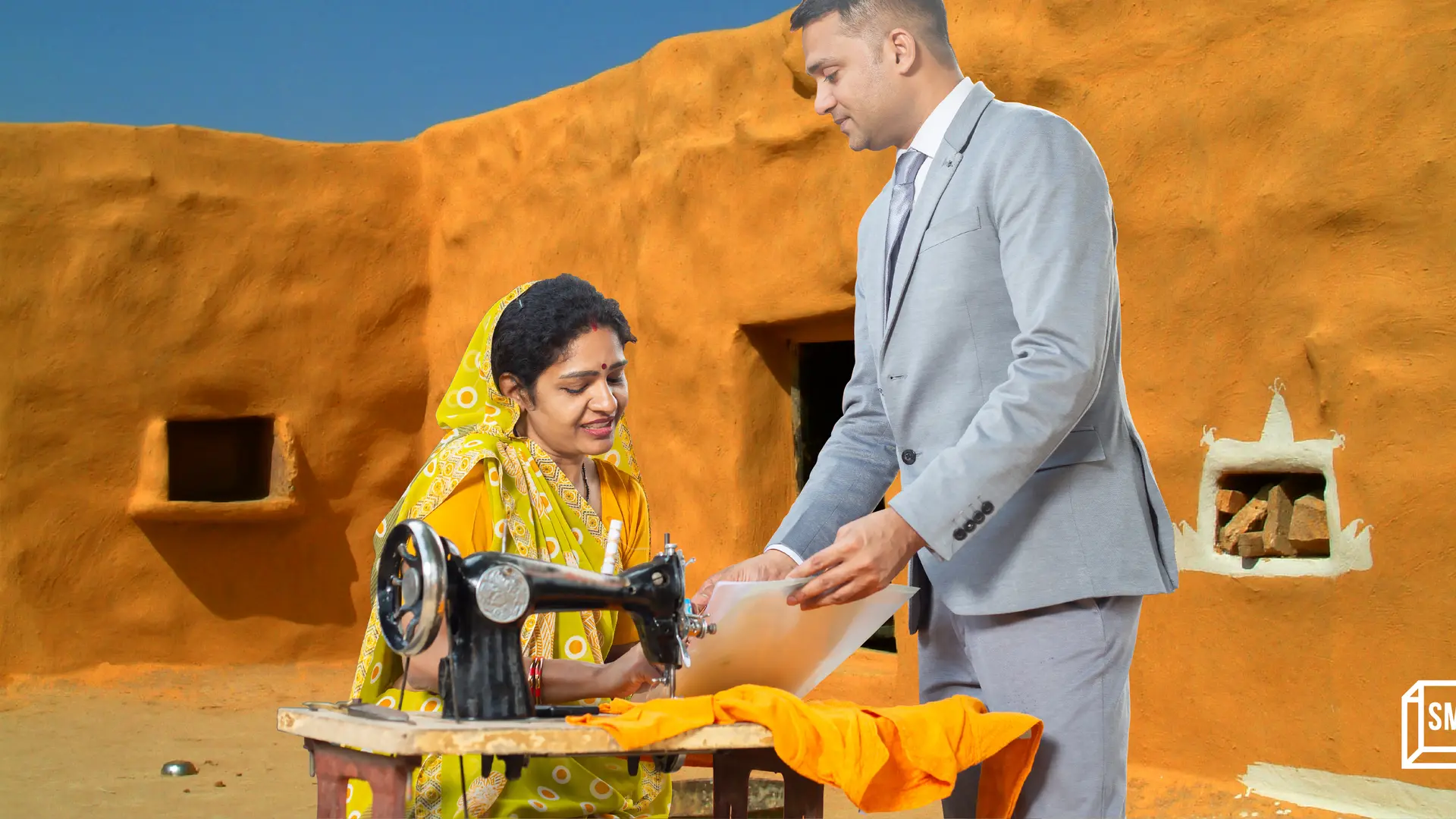Leather made of peas and mushrooms: How Escaro Royale is using tech to redefine high fashion
Ambud Sharma, CEO, Escaro Royale talks about the gaps in the Indian fashion industry, how his company uses tech to optimise processes, and how the coronavirus pandemic led the company to come up with vegan leather.
Nothing before has ever sounded the clarion for MSMEs to adopt technology as a fibre of their being as the coronavirus pandemic. Every company that has failed to use tech to innovate – either over the last few years, or even just the last two months – has receded into an obscure background.
But – a luxury Indian brand that offers handcrafted men’s footwear, bags and accessories – isn’t one of them.

Ambud Sharma, CEO, Escaro Royale
The Delhi-based company, launched in 2017 under its parent company, Ligo Group, has been using tech to revitalise an otherwise conventional business. The company aims to establish itself as India’s first and largest extreme-luxury super-premium tech-driven brand for men.
When the coronavirus pandemic hit India in March, the company quickly went into a crisis-aversion operating mode, and came up with creative solutions for sourcing raw materials it uses to manufacture its products.
SMBStory spoke the company’s chief executive officer, Ambud Sharma, about the company’s journey, his vision for Escaro Royale, and how the coronavirus pandemic pushed him to think out of the box for raw materials.
A techie through and through, Ambud worked as a software engineer in Motorola’s satellite communication engineering division, and later joined US-based telecom and content service company, Comcast.
Proud of breaking even within six months of operations, after clocking a turnover of Rs 15 crore in the first 24 months, and in FY 2019-20 clocked more than Rs 10 crore. Ambud is expecting to take a hit in the wake of the pandemic.
Edited excerpts from the interview-
SMBStory (SMBS): What is the story behind the launch of Escaro Royale?
Ambud Sharma (AS): So, we started out as brand aggregators in 2015, and within a few months we recognised how enough research is not done while developing a product. In addition, we saw huge inefficiencies in the sector. When we researched deeper, we understood that most luxury brands had complex supply chains, huge dead stocks and multiple layers (wholesales, distributors etc.) – all of which jacked up prices for the end consumer.
In addition, we wondered how to bring technology and mathematics into something as abstract as fashion to ensure that supply chains remain efficient and unaffected by the shortcomings in the industry. All this led to the launch of the company.
SMBS: Where do you source the raw materials from and where are they manufactured?
AS: We source raw materials from all over the world and assemble everything at our manufacturing unit in India. We source leather from Argentina, Brazil, and Italy. We only use pure leather because all our products are hand painted and hand crafted in karkhana (warehouse) setups throughout the country. The primers and binders come mainly from Italy, and the accessories from Taiwan. We only use eco-friendly and non-chemical hypoallergenic paints to handpaint our products.
SMBS: What are some gaps the sector is struggling with?
AS: In India, the biggest scam is that cheap quality leather is sold by encashing on its name and fooling the customers. There are three qualities of leather - full grain leather, top grain leather and finally, the lowest quality leather which is known as the genuine leather.
Most of the manufacturers and retailers sell the third category. Moreover, India is one of the biggest leather manufacturers in the world, but all the top quality leather is imported because Indian makers don’t have the pockets to spend so much.
Dead stock is a huge problem in inventory-led business models. To solve this problem, we have created Ligo’s Internal ERP system – called LERP – that allows us to maintain just-in-time inventory in order to eliminate dead stock and allow for zero wastage in our supply chain.
We also use a technology called Power BI which is used to visualise abstract data. The backend production units receive an order only when an order is confirmed. We don't stock inventory unless it’s for a historically popular design.
In a country like India, which is as good as a continent, one tailor-made strategy doesn’t work. Sometimes, there are multiple strategies that we have to deploy in a particular state.
SMBS: You are majorly an online selling brand. What are some trends you have seen in consumer-buying behaviour?
AS: We launched our website as a soft launch in September 2017. We had done quite a bit of social media branding right before that. Hence, as soon as we launched, we started getting orders. Social Media and Google Search Engine marketing are our go-to channels for our growth hack strategies. The products of Escaro Royale are priced between Rs 8,000-Rs 15,000 and go up to Rs 25,000 in the case of handbags.
Talking about online sales, we have realised Indian market is still very primitive in these terms. Men seem to be okay buying cheaper stuff online but when it comes to buying a Rs 10,000 average ticket size, they seem sceptical. We have seen that about 70 percent of our orders are cash on delivery which means that the trust factor for prepaid orders is still amiss.
Digital commerce has allowed for much greater penetration and manifold efficiency since it allows us to be able to market our products and services not only across India, but also across the world. About 20 percent of our orders are from international customers, which wouldn’t have been possible without digitization and e-commerce. For the consumer, it is a great gift since they can view, decide, and buy any product from a phone or desktop.
SMBS: How has COVID-19 affected you? What new innovations has the pandemic spurred within your company to survive?
AS: COVID-19 has brought disruption in terms of supply chains, but we are not very affected because we don’t have any dead stock.
However, since our raw materials come from Italy, Argentina and Brazil (which are among the worst affected countries), we are in the process of coming up with alternatives.
For instance, we came up with leather made up of peas and mushrooms because they contain high level of cellulite and flexibility.
SMBS: What are some things that will be different in the post-COVID-19 era?
AS: Since a lot of migrant workers have gone back to their villages, there is going to be a dearth of manpower in the coming times. Also, the government will become more willing to provide subsidies on machines and tools so that manufacturers in India produce consistently to meet domestic demand, as well as export demand.
I also believe that the government must come up with a policy to bolster employment in the workers’ original place of residence so as to minimise the disruption from mass migration.
As for the company, over the next few years, we believe that Artificial Intelligence (AI) and Machine Learning (ML) technologies will change the way retailers interact with or approach the customer, and the way they offer products.
Edited by Aparajita Saxena










